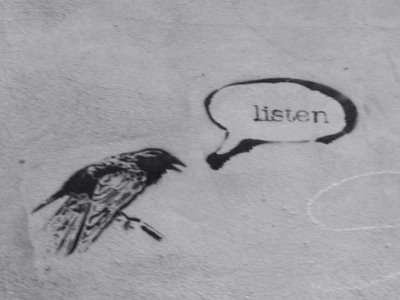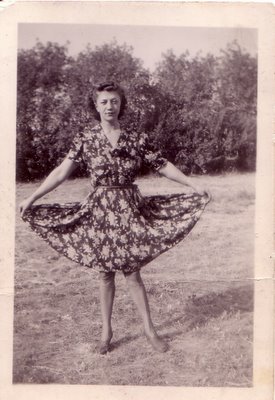
I was recently thinking (due to discussion about oral history) about how life has no linear plot.
Of course, being in an industrialized society we have conceptualized time in a line, chopped it into quantities, conceptualized it in little manufactured calendar-boxes and threw out our cyclic sundials in order to keep track of stuff, keep track of our “progress” – thereby shaping our thoughts to make it seem as if it does have a set plot.
But really, even past-present-future are so hazy in actuality; things happen from all directions, the past floats up, or we do go ‘back in time’ & get mired in the past just as we also sometimes get ahead of ourselves & fall into the future. Thoughts and memories and emotions of the distant past and distant future influence us at all times, at random, things happening in tangents, never going only forward. It’s not always just the direct moments of cause-&-effect, one at a time, plotted out on a little triangular diagram from grade seven language arts...
& our lives are never organized thematically. Sometimes everything does happen at once & every action becomes tangled in multiple plot-strands, each string informing every other string of action in the knot. It’s impossible.
This is also why I like to write poems. (& really have insurmountable trouble making stories...)
For poems also have no linear time, no insistent plot.
I like being able to deal with one moment, or a series of moments all entangled but in any particular order. I like to deal with the emotion & the memory. I don’t necessarily like to concoct what will happen next.
& I’ve been reading much Nicole Brossard lately. She is a fantastically amazingly delicious Quebecois author who is sadly overlooked, I think, in favour of Anglo authors such as Margaret Atwood, Brossard eclipses her in all manner of everything, especially in the sheer beauty of each line. I have never been terribly shaken by an Atwood sentence, I’ve never really wanted to quote her. Her phrases are very edgy & functional & powerful, yes, but nowhere near as purely poetic as a Brossard clause. When I read Atwood, I can see she is psychologically interested in stories, but I wonder how much she loves language. Brossard, however – even her language is filled with details about the delicacy of pronouns, the heady rush of verbs. “Certain words ignite me.” I am currently reading
Hier, or
en anglais, "Yesterday at the Hotel Clarendon" which is so intricate & gorgeous & lush. Four character-strands told in interwoven musings, swift short chapters. So wrenchingly good. It made me miss my bus stop...
I also finished her short book
Elle serait la première phrase de mon prochaine roman, ("She would be the first sentence of my next novel"). It’s a lecture she gave on writing, & she says something I really like:
«La vie n’est pas un histoire, elle est un émotion qui donne lieu à une aventure dans la langue.»"Life is not a story, it is an emotion that gives rise to an adventure in language.''
I think that very much summarizes poetry for me, & even as much as the reason why I am ultimately writing. I truly do not see my life as a narrative, although certainly I am aware of a great many patterns and recurrences and the overarching laws of causes and effects – despite all this, I feel like I live through a mass of collected experiences and feelings that come from all directions, all origins in the past/present/future, and it is this wholism I want to convey in my poems.
As Brossard also writes in
Elle serait...
« Je suis un femme du present... J’aime sentir que le monde peut converger, se défuire et se reconstituer en moi dans le temps court du poéme... » "I am a woman of the present. I like to feel that the world can converge, deconstruct and then reconstitute itself within me in the short time of a poem. "
This makes me happy, because her words encourage me on my writing, and the possibilities of a particular project of mine... I don’t have to have conventional dialogue! Or chapters! Or linear plot! & what I write might still even make sense to people other than myself... Her words inspire me to experiment with forms.... I’d been working on a short ‘novella’ since August, which is not really a novel at all, & is not really prose either... it’s a poem with chapters, I’d say... & it got very frustrating & fragmentary so I left it alone for a few months... because I couldn’t make things happen in it. & I thought things were supposed to happen. But Brossard’s ideas make much sense to me & have provoked me to continue it... because maybe I can make something readable & meaningful out of little themes & images in this little haphazard web... a collage with threads of characters... I too don’t want to be caught in the ‘subject-verb-object’ schema Brossard speaks of. I like using second-person narration, & switching point of view often, to focus on different significant details like changing camera lenses.
I like tangents. That is the moral of the story.
So go read Nicole Brossard. She is easy to find
en francais (mais oui) et en anglais, et aussi en les deux a la meme temps!
 i)
i)

